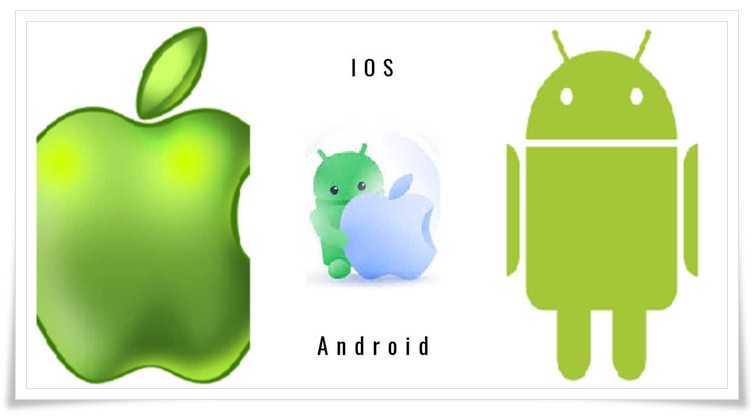If you are a startup with a new idea for an application and do not have enough financial resources to support both Android and IOS platform, then one of the critical decisions you will take is which OS to start with. After deciding on the OS on which to kick-off your project, you will also need to choose which particular versions of the OS also to support. An additional OS version means an extra effort, translating into the additional cost.
However, the issue is not limited to the cost of application development alone. Every OS version incurs recurring costs while providing the new features of the app because then one has to make sure that every new feature is either compatible with the older releases or it needs to be verified as not working and documented/conveyed to the customers.
The Android operating system is the most used smartphone platform in the US. 50% of smartphone users own an Android device. However, you do not just develop applications for the seemingly more popular targets without some further investigation.
Read More : Which smartphone brand comes with the least bloatware in 2021?
A stronghold of Apple is mobile browsing. Although there are more mobile Android users, they are not using the Internet from their phones as much as Apple users do. Therefore the real target audience for the applications is significantly less than the actual number of Android devices that are sold.
What does this tell us? It means that even though there are more Android devices in the market, Apple still leads by a large margin in usage wise. It means that the individual and combined spending capacity and intent of Apple users are still higher than that of Android users. Based on this, if you are planning to have an app for a niche market, it’s more likely to succeed on the iPhone than Android. Still the dilemma of iOS vs Android developmentis still a thing while starting out.
Further, Apple iOS devices mostly come in similar specifications, unlike Androids which are manufactured by tons of companies, and the devices having different specs, such as screen size, navigation methods, processors, and so forth. Developing Apple apps, you do not need to bother about all that; you only need to concentrate on building an app that works on the latest iOS version. With more than 91% homogeneous market and equal device size, iOS support translates to a couple of resolutions and couple of OS versions. They have to concentrate on the application features, if it works on one device, most likely it will work on all other iOS devices and can be accessible to all of your target audience. With such limited variations, it gives a massive advantage for the iOS app developer.
Within a year from now, iOS12 will be considered obsolete and old. So if you plan on developing a large app, which will be released soon, you need not to bother supporting it.
- If you possess a cool idea, which needs a lot of freedom in creativity, sensitive, location tracking, hardware integrations, financial integrations, go for Android. You will be sure not to face any problems with that.
- If you want your application to focus on stability, start with the iOS.
- If you are developing for Android, most applications can get away without supporting Android 2.3. Now. But if your app is dependent on viral growth, or for enterprises, you still need to deal with it.
Specific scenarios and situations favor Apple development, like if you wish for a substantial annual income and targeting an American audience with higher education. Then you should go to iOS. But there are also scenarios where Android development makes more sense to develop. Like if you have a global market target, and you’re planning to drive sales through ads instead of in-app purchases, then Android is your option.
Building your app, the choice of iOS vs Android development is tricky as it depends on your goals with the application. From the vital points discussed here, the ultimate decision is yours.
Author Bio:
Umar Bajwa is a young business enthusiast and content coordinator at AppModo loves to write about Mobile Apps, Technology, Health, and Life Style & Digital Marketing

Leave a Reply